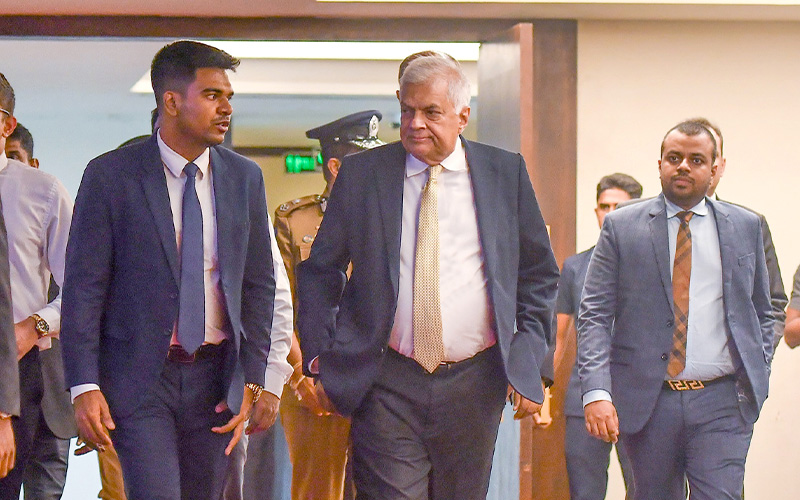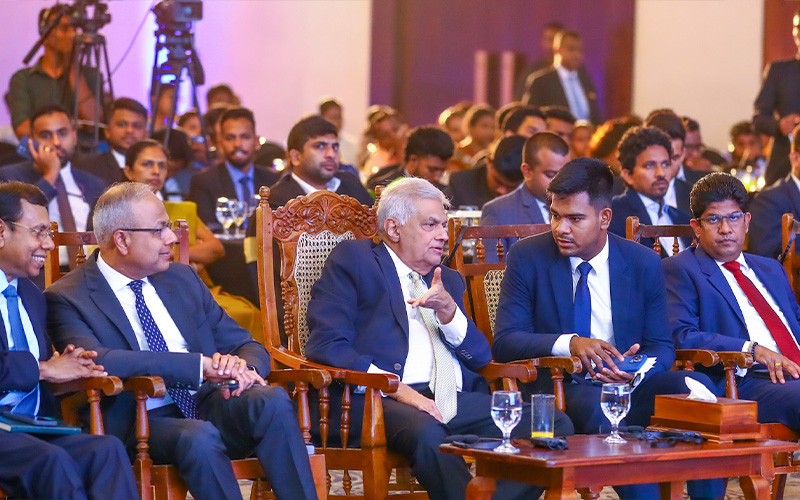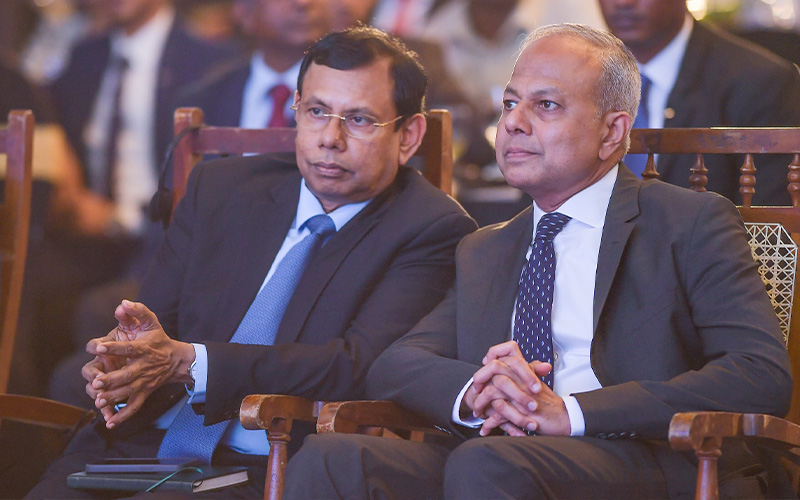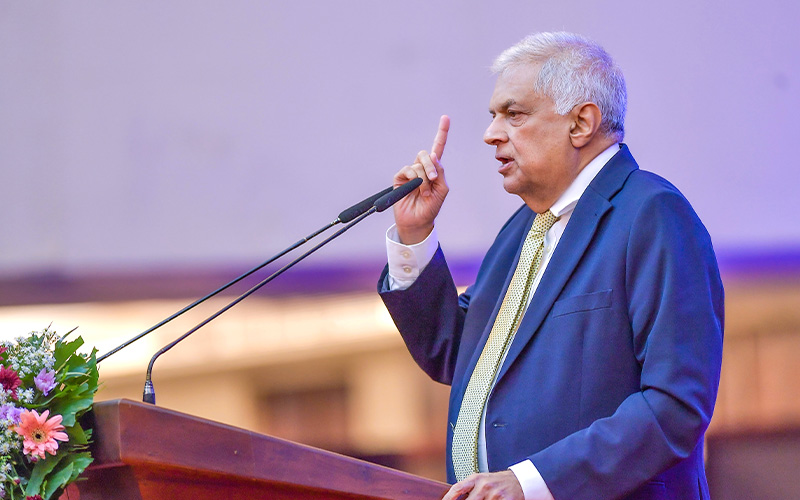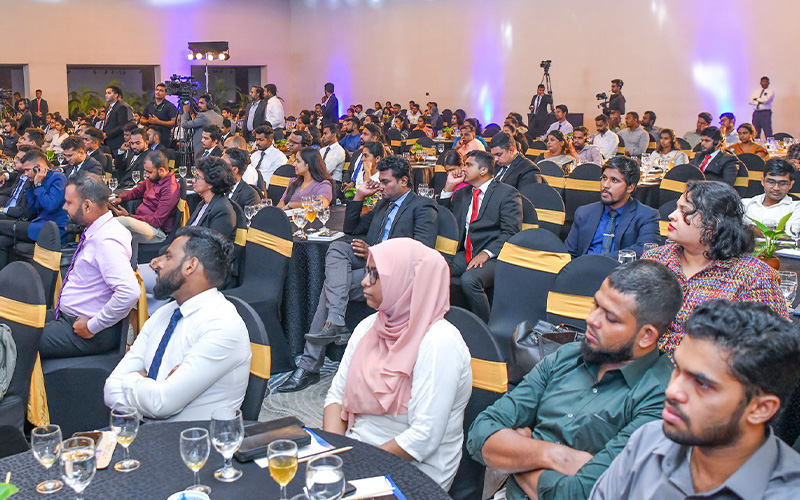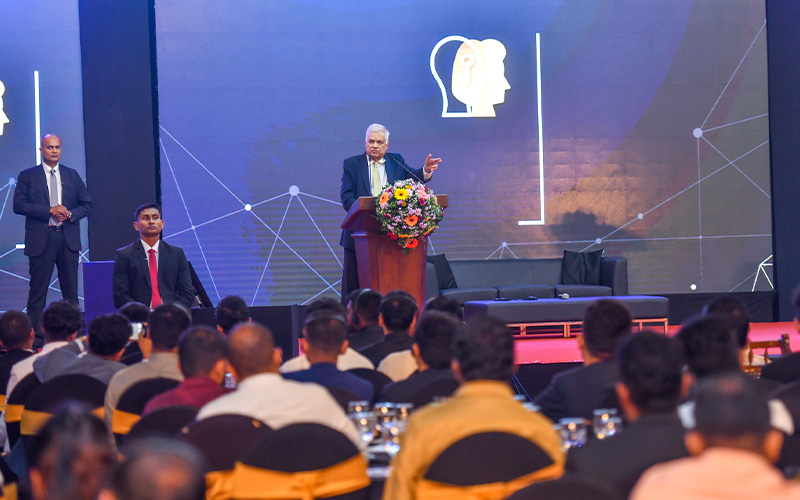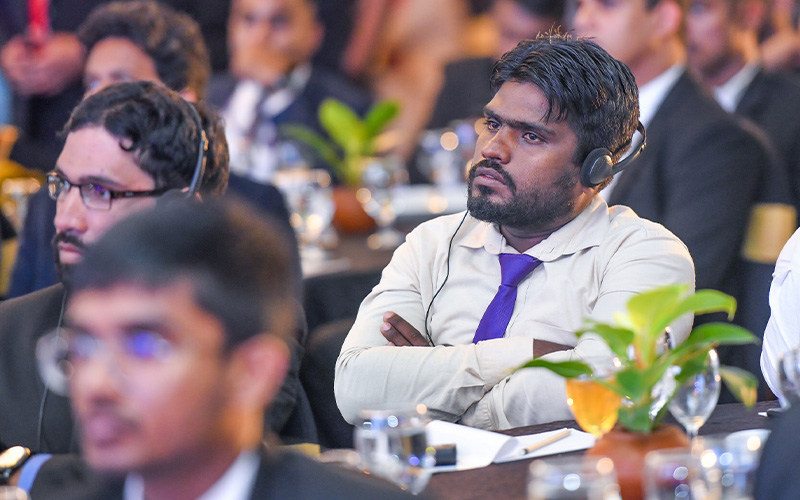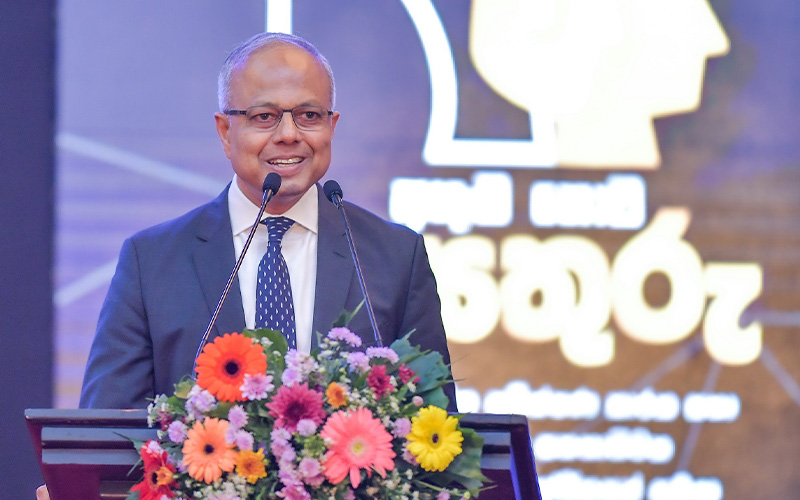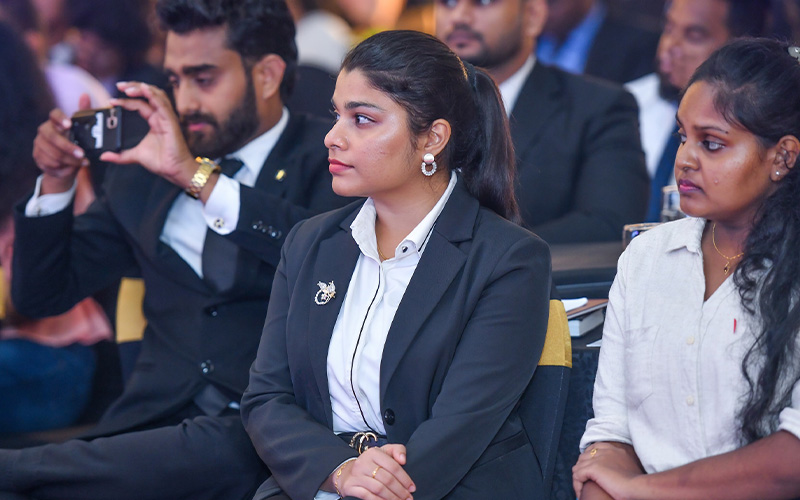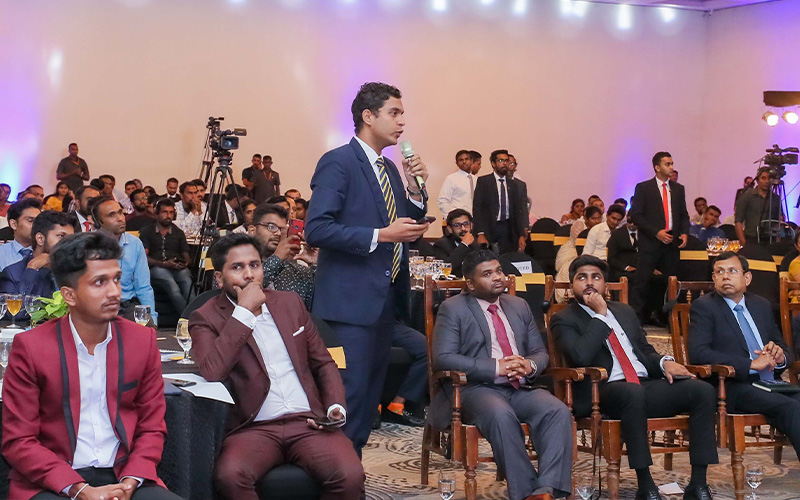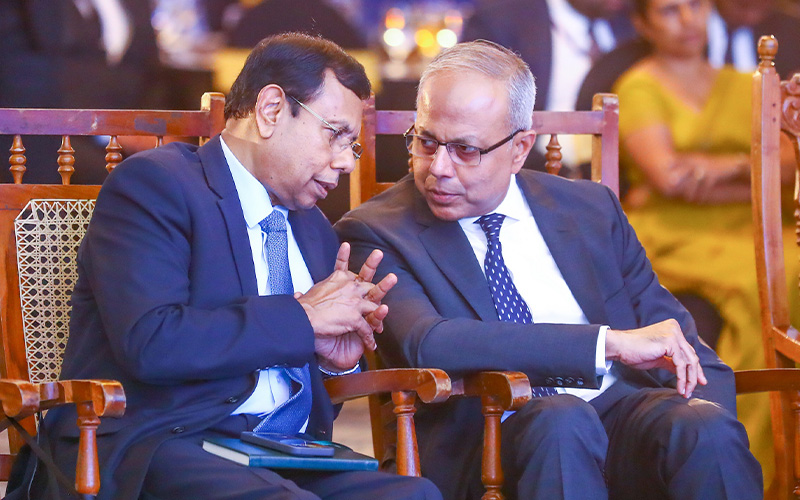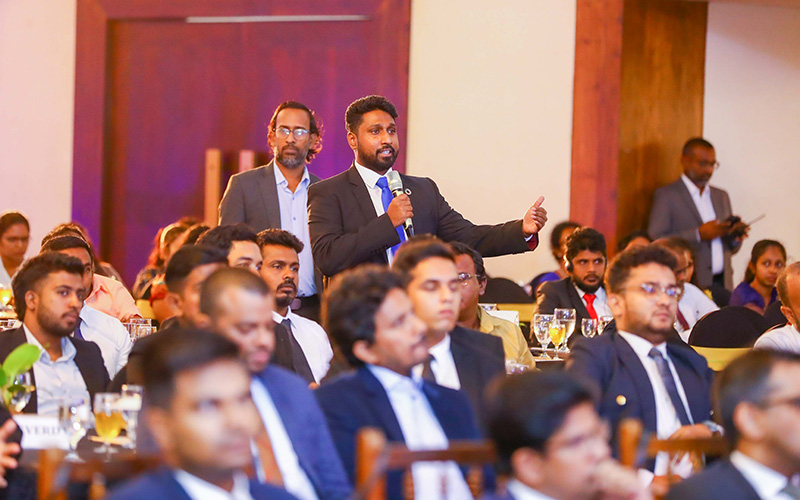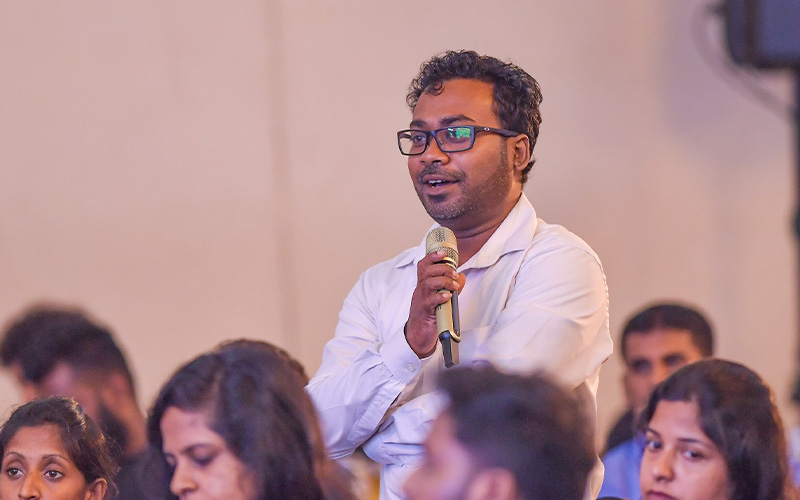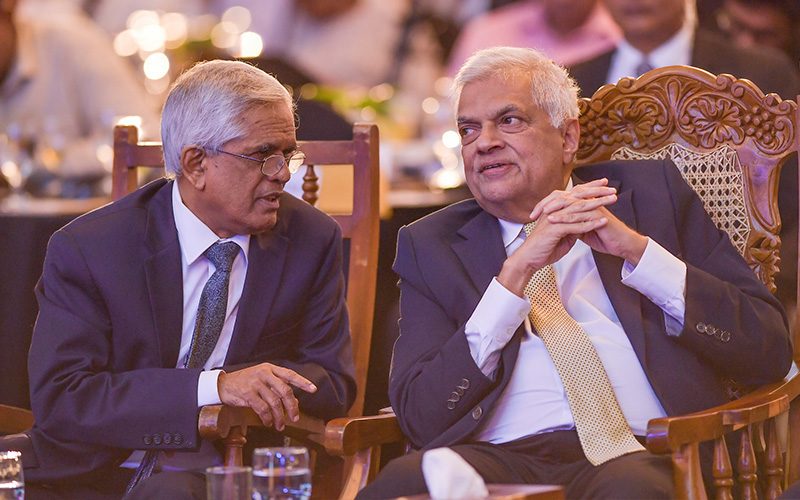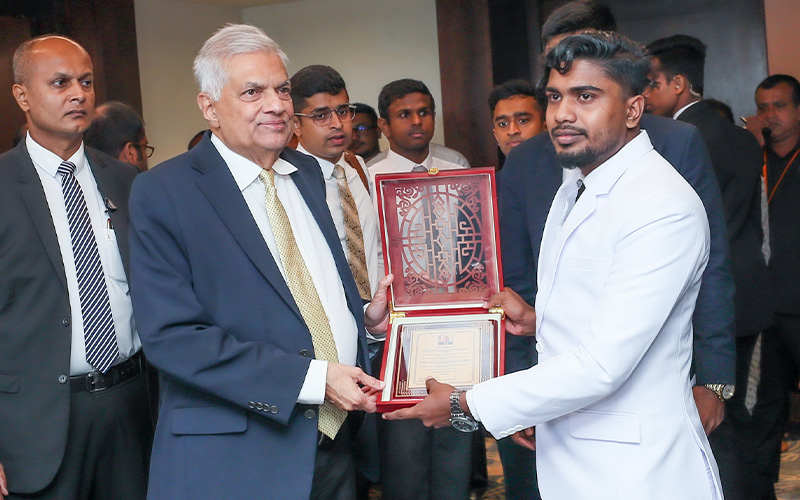In the upcoming presidential election, it is not my personal victory or defeat that is at stake, but rather the triumph or failure of the entire country
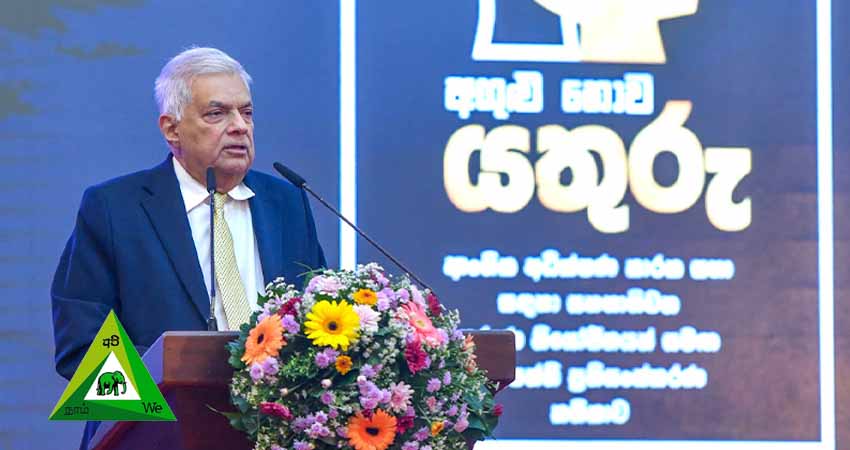
- There is no alternative program besides the Government’s Economic Program Which Is the Only Path to National Progress.
- Reversing the government’s current course Will Bring Back an Era of Hardship.
- No Party Has a Viable Plan for National Advancement Despite Campaign Promises.
- Avoid Past Political Mistakes of Making Decisions Based on Individuals – President.
President Ranil Wickremesinghe emphasized that the upcoming presidential election will not be about his personal victory or defeat, but that of the country’s success or failure.
The President noted that if the people are satisfied with the government’s program, they can support it. Otherwise, they will face the consequences of living in a country with a collapsed economy, struggling to supply essential items like medicines and fertilizer, and experience long queues for fuel and gas.
President Wickremesinghe made these remarks during a Dialogue on Policy Reforms held at the Water’s Edge Hotel in Battaramulla yesterday (11), with Youth Representatives of the Parliamentary Sectoral Oversight Committees.
The President highlighted that those making various promises on platforms today lack a concrete program to move the country’s economy forward. He also emphasized the need to avoid past mistakes by making decisions during elections, focusing on individuals.
To advance the nation’s economy, the President urged all political parties to support the Economic Transformation Bill presented by the government. He also invited them to present any alternative proposals they might have for the country.
President Ranil Wickremesinghe further stated,
“Today, you are gathered here as members of the Parliamentary Sectoral Oversight Committees. Since assuming the presidency, an idea was imparted to me during a discussion with Mr. Karu Jayasuriya, which has evolved into what we witness today. We have provided young leaders with a platform to contribute to governmental initiatives by offering their insights and recommendations for the nation’s future plans. Consequently, we carefully consider all viewpoints presented.
There is prevalent discourse regarding the economic bankruptcy of our country today. However, I do not fully concur with this assessment. Our country is not only facing economic challenges but also political ones. These intertwined issues have become a formidable challenge that demands our attention.
The absence of a formalized economic structure has left our country vulnerable to significant challenges. Historically, our economy has relied heavily on imports, creating a situation where our expenditure exceeded our financial resources. Compounded by the financial burdens of war, our fiscal situation deteriorated further. Despite hopes for rapid economic growth following the end of the war, progress has been limited. Fifteen years on from the end of the war, we find ourselves still grappling with economic stagnation. We persisted in employing outdated methods, resorting to borrowing when faced with financial constraints, ultimately leading to unsustainable debt levels.
During this period, there was a reluctance to acknowledge the reality of our economic situation. However, we recognized the urgent need for economic reform and made commitments to that effect during electoral campaigns. Regrettably, amidst these efforts, certain elements within the country propagated unfounded fears of national sovereignty compromise. Despite such assertions, we find ourselves in a state of financial crisis.
In 2015, during my tenure as Prime Minister, I had to implement tax increases to address the country’s revenue needs. However, in 2019, President Gotabaya Rajapaksa assumed leadership and initiated tax reductions, resulting in a decline in revenue. This reduction coincided with the onset of the Covid-19 pandemic, exacerbating our financial challenges. Despite the pressing need for foreign exchange reserves amounting to US$3 billion, this critical issue received little attention during the parliamentary elections. While our party, the United National Party, highlighted this concern in our policy statement, other parties focused on making unrealistic promises to voters. Consequently, our party suffered significant losses in the election, winning only one seat.
It is unprecedented for a party with just one seat to appoint a Prime Minister or President. This situation underscores the political turmoil and lack of leadership in our country. Faced with this crisis, I assumed the presidency to address the economic challenges.
Recognizing the importance of empowering the youth, we have initiated programs to foster their understanding and involvement in shaping the country’s economic future. It is imperative to equip the younger generation with the necessary skills and knowledge to lead our nation forward.
Today, certain politicians are making extensive promises without presenting any concrete policies to drive the country’s economic growth. Despite prolonged discussions between the opposition leader and Mr. Anura Dissanayake regarding debate formats and venues, no agreement was reached. Regrettably, none of these individuals have put forth a viable economic agenda.
In light of this, it is essential for them to articulate whether they offer alternative approaches beyond the government’s initiatives. However, no such proposals have been forthcoming. If they are unwilling to engage constructively, it is imperative to consider alternative avenues for progress. Engaging in such programs facilitates valuable interactions with officials and the private sector, fostering knowledge enhancement and the generation of new ideas. I extend an invitation to all stakeholders to break free from conventional paradigms and propel the nation forward collectively.
Below are the questions posed by the youth, along with President Ranil Wickremesinghe’s responses.
Q:
The draft bill aimed at transforming the National Youth Parliament from a mere concept into a constitutional institution has been presented. What are your thoughts on this development?
A:
The National Youth Parliament has been functioning for quite some time now, and it’s high time to formalize its status through legislation. One of the key challenges we face is determining the criteria for selecting its members. Should it be limited to certain youth organizations or open to all? If it’s open, how do we compile the participant lists? These are some of the critical questions that need resolution. I’ve urged the concerned parties to come up with viable solutions, and we’ll proceed accordingly.
Furthermore, there’s a pressing need to address the issue of female representation in provincial and divisional councils. The idea of youth representation was initially proposed during President Premadasa’s tenure, but it was confined to mere nominations. As part of our policy agenda, I’m committed to implementing measures to enhance youth representation within the next two to three years. It’s time to initiate discussions on this matter. Additionally, when it comes to ‘Janasabha,’ we must consider the necessity and form of representation for women and youth. I believe it’s imperative to engage the youth in this dialogue and work towards finding suitable solutions.
Q: Is there a possibility to establish a youth leadership task force to collaborate with ministry secretaries? There seems to be a lack of grassroots understanding in activities related to smart technology. What are your thoughts on this?
A:
It’s indeed crucial to integrate youth perspectives into ministries and administrative processes. I encourage you to deliberate on how this integration can be effectively achieved and provide your recommendations. The significance of engaging with Parliament lies in its role in policy formulation, while involvement in ministries or provincial councils entails contributing to policy implementation. Together, let’s explore the most suitable approach for connectivity and present your proposals. I refrain from dictating specifics because this pertains to your future, not mine. By 2048, I won’t be in office, but you will.
Q:
When the country’s economy collapsed, you accepted the challenge and successfully faced it. But if you somehow lose the next election, will there be anyone to take the lead to continue the current program?
A:
The outcome of the upcoming election is not solely about my personal victory or defeat; it will determine whether the country succeeds or fails. We’ve engaged in discussions with the International Monetary Fund (IMF) and formulated an economic program, supported by the Economic Transformation Law. Should this program falter, we risk losing foreign exchange reserves, leading to shortages of essential items like medicines, fuel and gas. Hence, the decision to continue with the government’s program is critical.
I call upon all party leaders to support this economic transformation law or propose a viable alternative. This election isn’t merely about selecting individuals but about choosing the most effective system for our country’s progress. If you believe in the merits of the current approach, let us proceed accordingly.
Conversely, opting for a scenario where our economy collapses, devoid of essential resources, is another option. If the government’s program lacks merit, an alternative must be presented. However, to date, no such alternative has been forthcoming. While some suggest renegotiating agreements with the IMF, the IMF has indicated their inflexibility. Can we afford to default on our national debts next month?
Hence, it is imperative to consider the future of our nation carefully and make informed decisions accordingly.
Senior Advisor to the President on National Security and Chief of Presidential Staff Sagala Ratnayaka,
During both the war and the recent economic crisis, we all experienced significant hardships. The repercussions were far-reaching, plunging us into energy insecurity with prolonged power outages and fuel shortages. Misguided policies on food and fertilizers exacerbated food insecurity, leading to the collapse of the agricultural sector. This, coupled with challenges in healthcare and other vital sectors, inflicted severe economic hardships on us. As a nation, we found ourselves stripped of even the most basic necessities like food and gas.
As such, national security encompasses more than just safeguarding territorial integrity. Recognizing this, a new role has been proposed for the President, complete with a National Security Advisor and a dedicated National Security Secretariat. While the bill outlining these changes has yet to be introduced, it will form part of a comprehensive legislation covering various critical areas, including the National Security Secretariat, the newly-established Chief of Defence Staff (CDS) Act, and the National Institute for Strategic Studies.
The scope of the National Security Secretariat extends beyond traditional security to encompass economic and energy security, among other sectors. National security is a multifaceted concept that defies precise definition, spanning a wide array of fields. There is a pressing need for reform within our intelligence agencies, recognizing the distinct operational requirements during peacetime and wartime, both of which are integral to safeguarding the territorial integrity of the country. Efforts are underway to modernize these agencies with the assistance of our friendly nations. Additionally, we are incorporating an overseas division, formerly under the purview of the Ministry of Foreign Affairs but typically overseen by the Ministry of Defence.
The event was attended by distinguished figures including Senior Advisor to the President on Economic Affairs Dr. R. H. S. Samaratunga, Parliamentary Deputy General Secretary Chaminda Kularatne, President’s Counsel Eraj De Silva, and other officials.
